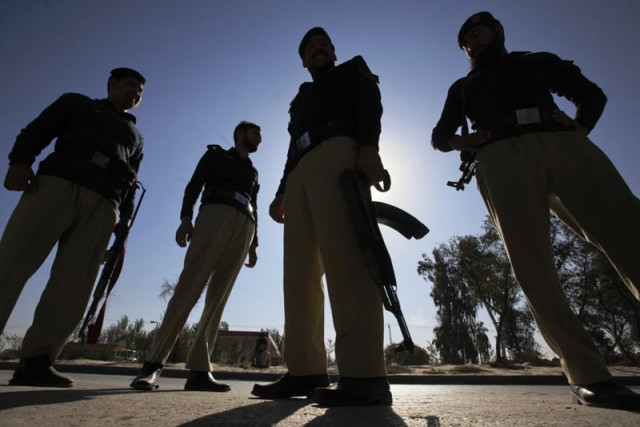SC gives Sindh govt a chance to set the act in order
Apex court informed that provincial assembly may take up the issue in current session.

PHOTO: REUTERS/FILE.
The ordinance was hurriedly implemented by the Sindh government a day after the apex court had on September 3, 2012, ordered the demotion of illegally promoted police officials, as well as, the repatriation of those inducted and absorbed in provincial government departments from various other departments and posted to lucrative posts.
The proceedings are based on a number of applications, appeals and petitions that were filed by the officers both against and in favour of such shoulder promotions.
Some police officers had gone to the court against these out-of-turn promotions to junior officers. They argued that such promotions were in violation of the Sindh Civil Servants (Appointment, Promotion and Transfer) Rules 1974.

The provincial government had, however, defended these promotions arguing that they deserved this reward for their exceptional performance. The apex court, however, did not agree and nullified all these promotions and ordering the demotion of all beneficiary officers.
The court had also ordered repatriation of all officers, who were inducted from other departments. To circumvent the order of the apex court, the Sindh government instead introduced Sindh Civil Service Ordinance 2012 to legalise the promotions and deputations.
On Monday, the bench - comprising Justice Sarmad Jalal Osmany and Justice Amir Hani Muslim - questioned the provincial law officer on the legal status of service of such officers. Additional advocate general Muhammad Sarwar Khan informed that the ordinance had lapsed. But he quickly added that there was a possibility that the proposed law would be tabled during the on-going session of the Sindh Assembly. The bench allowed time to allow the assembly decide the fate of the ordinance. Meanwhile, the officer was directed to the submit the details of these promotions signed by the IGP.
The judges referred both cases for hearing to a larger bench, constituted to hear the Karachi suo motu implementation case from February 6.
Published in The Express Tribune, February 5th, 2013.



















COMMENTS
Comments are moderated and generally will be posted if they are on-topic and not abusive.
For more information, please see our Comments FAQ